Economy
NDP slated to back Conservative motion calling for nationwide pause on home heating carbon tax
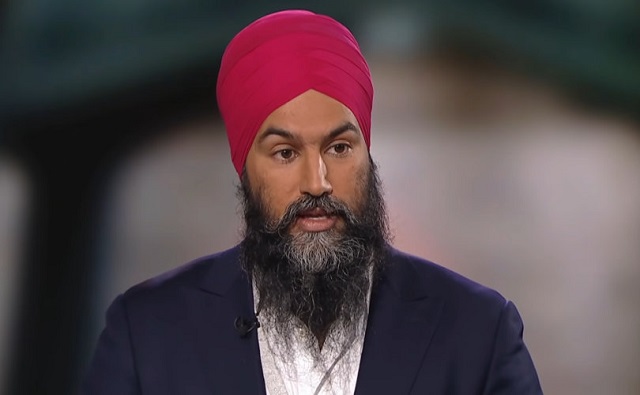
From LifeSiteNews
‘The reality is we have people who are struggling to make ends meet— to heat their homes during the winter,’ NDP House leader Peter Julian told reporters Thursday, indicating the party’s support for the Conservatives’ motion.
In a rare turn of events, the New Democratic Party (NDP) is slated to vote in favor of a Conservative Party of Canada (CPC motion calling for a nationwide pause on the carbon tax applied to home heating fuel.
While the motion is non-binding, should the NDP vote in favor of the motion, it could force the federal government under Liberal Prime Minister Justin Trudeau to pause the tax for all Canadians, and could even open up the possibility of a future vote of non-confidence.
CPC MPs served a notice in the House of Commons that they will put to a vote, as early as this coming Monday, their motion which reads: “That given the government has announced a ‘temporary three-year pause’ to the federal carbon tax on home heating oil, the House call on the government to extend that pause to all forms of home heating.”
The motion was brought forth by CPC leader Pierre Poilievre on Tuesday of this week.
Trudeau announced last week he was pausing the collection of the carbon tax on home heating oil for three years, but only for Atlantic Canadian provinces. The current cost of the carbon tax on home heating fuel is 17 cents per liter. Most Canadians however heat their homes with clean-burning natural gas, a fuel which will not be exempted from the carbon tax.
Trudeau’s carbon tax pause for Atlantic Canada announcement came amid dismal polling numbers showing his government is likely to be defeated in a landslide by the Conservative Party come the next election.
Earlier this week, Poilievre dared Trudeau to call a “carbon tax” election so Canadians can decide for themselves if they want a government for or against a tax that has caused home heating bills to double in some provinces.
Trudeau claimed the Conservatives “still want to fight another election on denying climate change,” and that they are “wrong” as Canadians would vote Liberal again.
After he suggested Canadians would vote Liberal again, despite polls suggesting the party would lose badly if an election were called today, Poilievre hand gestured Trudeau to “bring it [an election].”
Trudeau has thus far rejected calls for giving carbon tax exemptions to other provinces.
NDP appears to support Conservative motion
The CPC’s motion appears to have the support of the NDP, an interesting development considering the deal they have with the Liberal Party. The Liberal Party has a minority government and formed an informal coalition with the NDP last year, with the latter agreeing to support and keep the former in power until the next election is mandated by law in 2025.
Yesterday, NDP House Leader Peter Julian told reporters, “The reality is we have people who are struggling to make ends meet— to heat their homes during the winter.”
“The panicked action of last week really needs to be adjusted so there are supports that go to people right across the country,” he said.
Julian added that Trudeau’s backtracking of the carbon tax for one region of the country is not fair for the rest of Canadians.
“It tends to disadvantage a lot of people,” he said.
Should the NDP vote in favor of the CPC motion, it should pass the House of Commons. It is unclear whether the Bloc Québecois are in favor of the motion.
Trudeau’s latest offering of a three-year pause on the carbon tax in Atlantic Canada has caused a major rift with oil and gas-rich western provinces, notably Alberta and Saskatchewan, and even Manitoba which has a new NDP government.
Saskatchewan Premier Scott Moe on Monday said his province will stop collecting a federal carbon tax on natural gas used to heat homes come January 1, 2024, unless it gets a similar tax break as the Atlantic Canadian provinces.
Alberta Premier Danielle Smith has said she will be looking into whether a Supreme Court challenge on the carbon tax is in order. She noted however that as Alberta has a deregulated energy industry, unlike Saskatchewan, she is not in a position to stop collecting the federal carbon tax.
LifeSiteNews reported earlier this month how Trudeau’s carbon tax is costing Canadians hundreds of dollars annually, as the rebates given out by the federal government are not enough to compensate for the increased fuel costs.
The Trudeau government’s current environmental goals – in lockstep with the United Nations’ “2030 Agenda for Sustainable Development” – include phasing out coal-fired power plants, reducing fertilizer usage, and curbing natural gas use over the coming decades.
The reduction and eventual elimination of the use of so-called “fossil fuels” and a transition to unreliable “green” energy has also been pushed by the World Economic Forum (WEF) – the globalist group behind the socialist “Great Reset” agenda – an organization in which Trudeau and some of his cabinet are involved.
Send an urgent message to Canadian legislators urging them to stop more online censorship laws
Economy
Feds spend $3 million to fly 182 politicians and bureaucrats to climate conference

From the Canadian Taxpayers Federation
Author: Ryan Thorpe
Feds trip to COP28 in Dubai cost $3 million
The cost for Canada to send hundreds of people to COP28 in Dubai has doubled, rising to nearly $3 million, according to government records obtained by the Canadian Taxpayers Federation.
Included in those costs is $1.3 million the federal government dished out to host a “Canada Pavilion” at the summit, which featured a rapper performing a song on “climate disinformation,” while giving a shoutout to Environment Minister Steven Guilbeault.
“Nothing screams fighting climate change like flying around the world burning through jet fuel and millions of tax dollars,” said Franco Terrazzano, CTF Federal Director. “Here’s a crazy idea: maybe the feds don’t need to spend $3 million flying 182 politicians and bureaucrats to Dubai.”
The federal government paid for at least 182 people to go to COP28, held from Nov. 30 to Dec. 12, 2023, in Dubai, United Arab Emirates.
A previous report from the National Post pegged the cost for Canada’s delegation at $1.4 million.
But the bill now sits at $2,954,188, including $825,466 for transportation, $472,570 for accommodations and $295,455 for meals and incidentals, according to the records.
The records indicate the cost could rise even higher, as certain invoices and travel claims “have yet to be processed.”
Costs included $1.3 million for a “Canada Pavilion” to “showcase the breadth of Canadian climate leadership.”
At the Canada Pavilion, a Canadian rapper known as Baba Brinkman – the son of Liberal MP Joyce Murray – performed a rap on “climate disinformation.”
“Climate disinformation, get that immunization, the vaccine for bad meme infiltration,” Brinkman rapped. “Climate misinformation, it leads to polarization, which leads to radical conspiracy ideation.”
Environment Minister Steven Guilbeault also received a shoutout during Brinkman’s rap.
“Really? Hosting a rapper half-way around the world to drop rhymes at a government podium will help the environment?” Terrazzano said.
The records were released in response to an order paper question from Conservative MP Dan Mazier (Dauphin-Swan River-Neepawa).
Most of the hotel expenses came from the Dubai Marriott and the Premier Inn at the Dubai Investment Park, with rooms coming in between $150 and $400 per night.
The most expensive digs was a $816-per-night suite at the Pullman Dubai Jumeriah Lakes Towers, a “five-star hotel offering upscale accommodations.”
The Canadian delegation also handed out $650 worth of gifts during the trip.
Automotive
Biden’s Climate Agenda Is Running Headfirst Into A Wall Of His Own Making
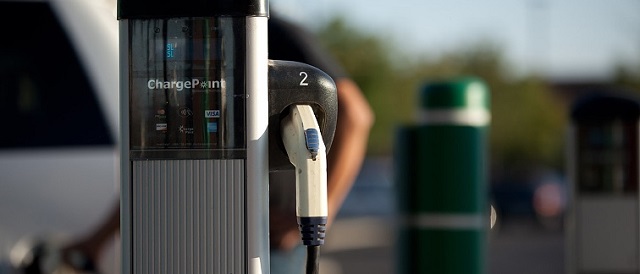
 From the Daily Caller News Foundation
From the Daily Caller News Foundation
By WILL KESSLER
President Joe Biden’s administration unveiled tariffs this week aimed at boosting domestic production of green energy technology, but the move could end up hamstringing his larger climate goals.
The tariffs announced on Tuesday quadruple levies for Chinese electric vehicles (EVs) to 100% and raise rates for certain Chinese green energy and EV components like minerals and batteries. Biden has made the transition to green energy and EVs a key part of his climate agenda, but hiking tariffs on those products to help U.S. manufacturing could jack up prices on the already costly products, slowing adoption by struggling Americans, according to experts who spoke to the DCNF.
The risks posed by hiking levies on green technology expose the inherent tension between Biden’s climate agenda and his efforts to protect American industry, which often struggles to compete with cheap foreign labor. Items on his climate agenda typically raise costs, and requiring companies to comply could make them uncompetitive on the world stage.
“These tariffs are a classic example of the Biden administration’s left hand not knowing what the right hand is doing,” E.J. Antoni, a research fellow at the Heritage Foundation’s Grover M. Hermann Center for the Federal Budget, told the DCNF. “The inability to import Chinese-made EVs due to prohibitively high costs will necessitate importing raw materials and parts for EVs from China. Since automakers can’t afford to build and assemble the vehicles here, prices will have to rise. In other words, American consumers will pay the cost of this tariff, not the Chinese.”
The White House, in its fact sheet, pointed to China artificially lowering its prices and dumping goods on the global market as the justification for the new tariffs in an effort to help protect American businesses. China has pumped huge subsidies into its own EV industry and supply lines over the past few years, spawning a European Union investigation into vehicles from the country.
“Tariffs on Chinese EVs won’t just make Chinese EVs more expensive, they will also make American EVs more expensive,” Ryan Young, senior economist at the Competitive Enterprise Institute, told the DCNF. “This is because domestic producers can now raise their prices without fear of being undercut by competitors. Good for them but bad for consumers — and for the Biden administration’s policy goal of increased EV adoption.”
Several American manufacturers are already struggling to sell EVs at a profit, with Ford losing $4.7 billion on its electric line in 2023 while selling over 72,000 of the vehicles. To ease price concerns and increase EV adoption, the Biden administration created an EV tax credit of $7,500 per vehicle, depending on where its parts are made.
The market share of EVs out of all vehicles fell in the first quarter of 2024 from 7.6% to 7.1% as consumers opted to buy cheaper traditional vehicles instead. Growth in EV sales increased by just 2.7% in the quarter, far slower than the 47% growth that the industry saw in all of 2023.
The Biden administration has also sought to use regulations to push automakers toward electrifying their offerings as consumers refuse to voluntarily adopt EVs, finalizing rules in March that effectively require around 67% of all light-duty vehicles sold after 2032 to be electric or hybrids.
“By raising the price — and thereby stunting the deployment — of EVs, the tariffs undermine the Biden administration’s stated goals of reducing carbon emissions (as many U.S. environmentalists and EV fans have recently lamented),” Clark Packard, research fellow in the Herbert A. Stiefel Center for Trade Policy Studies at the Cato Institute, wrote following the announcement. “The EV tariffs (and also-announced solar tariffs) would continue the administration’s habit of choosing politics and protectionism over their environmental agenda.”
Despite the subsidies, the 25% tariff that is currently in place for Chinese EVs already prices the product out of the U.S. market, resulting in no Chinese-branded EVs being sold in the country, according to Barron’s. Only a handful of the more than 100 EV models being sold in China appeal to American consumers, and none of them can compete under current levies.
“Something like this happened just a few years ago when former president Donald Trump enacted 25% steel tariffs in 2018,” Young told the DCNF. “Domestic steel producers raised their prices by almost exactly the amount of the tariff, and America soon had the world’s highest steel prices. As a result, car prices went up by about $200 to $300 on average. Larger trucks with more steel content increased even more. Now Biden is going to do the same thing to EVs.”
I won’t allow American towns and workers to be hurt by China’s unfair trade practices that flood our markets with cheap products.
That’s what these new tariffs are all about. pic.twitter.com/GGApGqtg7O
— President Biden (@POTUS) May 15, 2024
In the year following the increase in steel tariffs under the Trump administration, U.S. Steel’s operating profit rose 38%, prices were hiked 5 to 10% and revenue was up 15% due to reduced competition, according to CNN.
Despite the massive tariff hike on EVs, Biden only raised the tariff rate on Chinese lithium-ion EV batteries and battery parts to 25%, according to the White House. The tariff rate on certain essential minerals, like natural graphite, was also hiked to just 25%.
“Despite rapid and recent progress in U.S. onshoring, China currently controls over 80% of certain segments of the EV battery supply chain, particularly upstream nodes such as critical minerals mining, processing, and refining,” the White House wrote in its fact sheet. “Concentration of critical minerals mining and refining capacity in China leaves our supply chains vulnerable and our national security and clean energy goals at risk.”
China has broad control over the majority of minerals necessary to construct EVs, possessing nearly 90% of the world’s mineral refining capacity. Sources of the required minerals often also have serious human rights concerns, such as the world’s supply of cobalt, which has widespread ties to child labor.
Biden attacked former President Donald Trump during the 2020 election for the broad tariffs that he put on Chinese goods, noting that “any freshman econ student” could point out that the costs of the tariffs would be passed on to American consumers.
EV makers have increasingly struggled over the past year to maintain profits amid stalling demand, with the largest American EV manufacturer, Tesla, reporting a 10% drop in year-over-year revenue in the first quarter of 2024. Tesla is one of several EV makers that have announced layoffs in recent months.
“Fortunately, the EV market is still small in the U.S. and Chinese EVs are an even smaller slice of that small pie,” Antoni told the DCNF. “Even if the EV market in the U.S. were large, these tariffs would not help the domestic EV industry. While consumer demand for EVs would shift to domestic models, an increase in domestic production would rely on very expensive inputs from China, cutting into profits.”
The White House did not respond to a request to comment from the DCNF.
-
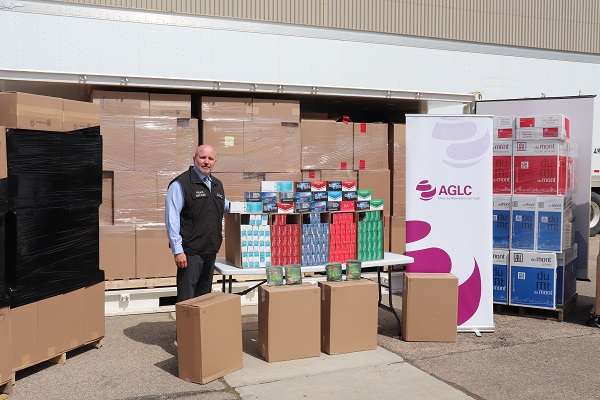
 Alberta2 days ago
Alberta2 days ago30 million contraband cigarettes valued at $25 million dollars seized in Alberta
-

 National2 days ago
National2 days agoTrudeau again blames ‘climate change’ for mostly man-made wildfires
-
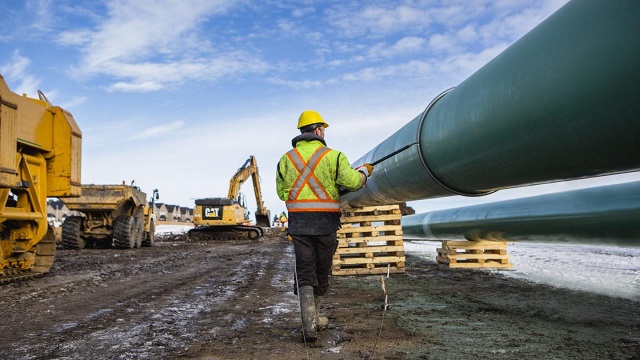
 Canadian Energy Centre2 days ago
Canadian Energy Centre2 days agoTrans Mountain completion shows victory of good faith Indigenous consultation
-

 Alberta2 days ago
Alberta2 days agoFortis et Liber: Alberta’s Future in the Canadian Federation
-
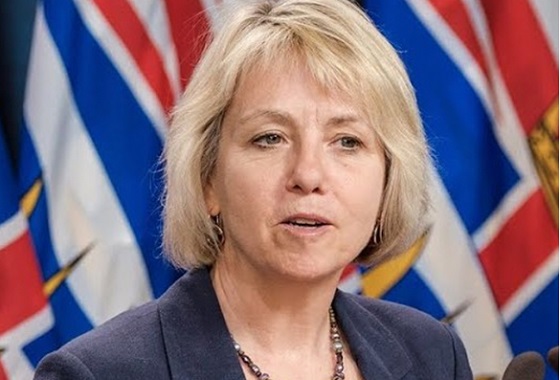
 COVID-192 days ago
COVID-192 days agoHealthcare workers obtain partial win against Bonnie Henry in BC Supreme Court
-

 COVID-192 days ago
COVID-192 days agoElon Musk-backed doctor critical of COVID response vows appeal after court sides with medical board
-

 Health2 days ago
Health2 days agoUK pediatrician who led review of child ‘transitions’ says US medical groups ‘misleading the public’
-

 COVID-191 day ago
COVID-191 day agoCOVID Lab Leak: Over four later, EcoHealth Alliance funding is finally suspended







